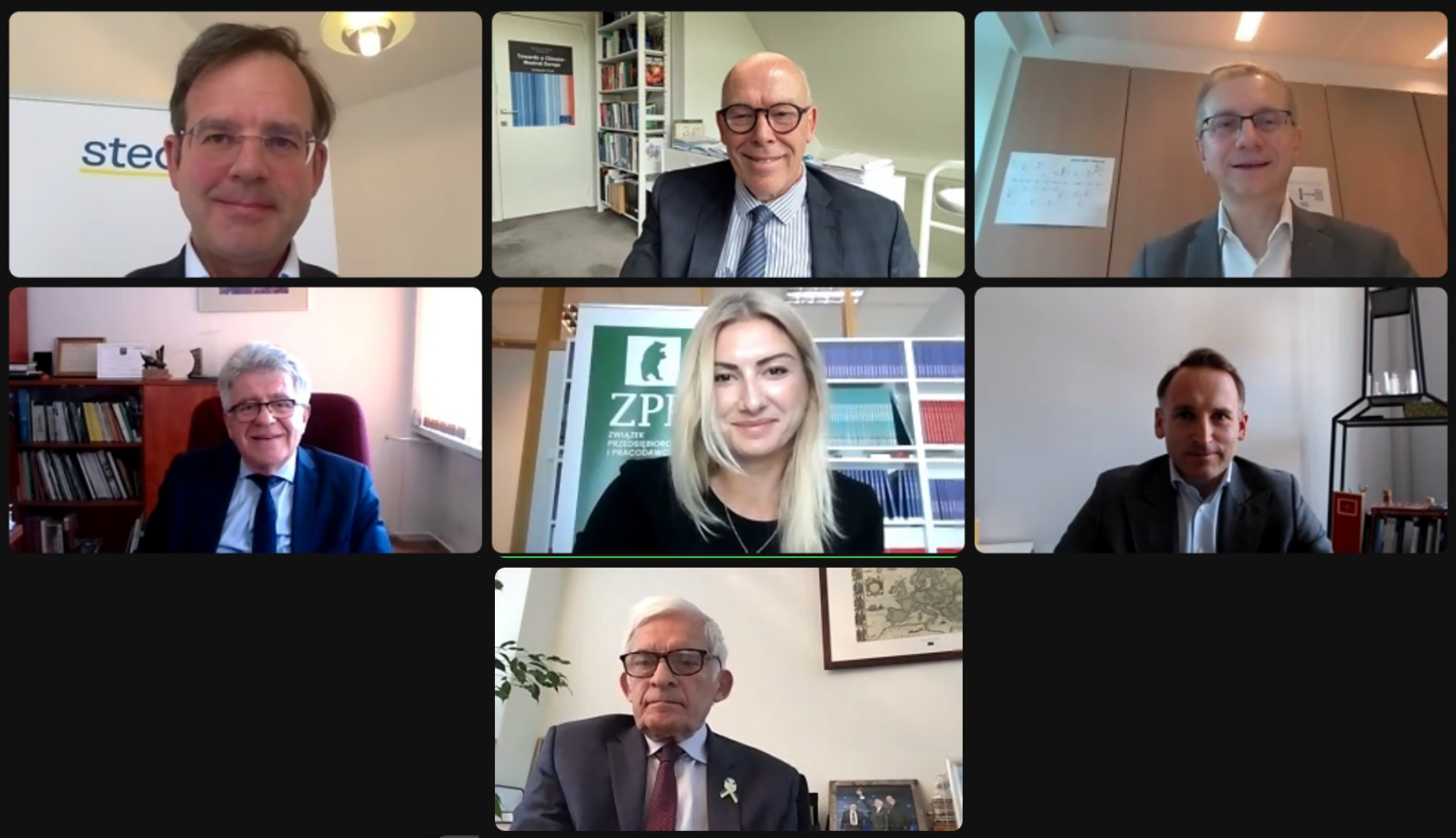EU Emissions Trading System –
Reforms towards the Future

On Tuesday, May 10th, 2022, in partnership with cooperation with ZPP and EEA, SME Connect organized the webinar “EU Emissions Trading System – Reforms towards the Future”.
Hosted by Jerzy Buzek MEP, ITRE Committee, and moderated by Dominika Taranko, Director of the Energy Forum, Union of Entrepreneurs and Employers, the webinar saw a high-level discussion between the following speakers: Jos Delbeke, Professor, Chair on Climate Change Policy and International Carbon Markets, European Investment Bank; Marcin Nowacki, EESC Member and Vice President, the Union of Entrepreneurs’ and Employers; Hans Wolf von Koeller, Head of Energy Policy, STEAG GmbH; Antoine Hoxha, Production and Agriculture Director, Fertilizers Europe; and Prof Jan Deja, Chief Executive of Polish Cement Association and AGH, University of Science and Technology.
Jos Delbeke started the debate remarking that, while long-term concerns of current energy and climate policies are all pointing towards the right dimension, unfortunately short term solutions – i.e. price increases – end up overburdening consumers, SMEs and households first. With previous prices, the free allocation system worked well to counter carbon leakage, but with doubled prices the risk now is overcompensating and not supporting enough companies who are making significant investments into cleaner technologies.
Hans Wolf von Koeller shared the industry’s and the operator’s apprehension that the next step in market interference will be restricted access. In his opinion, politics should not overtake market concerns.
Prof Jan Deja brought the perspective of the Polish cement industry: the majority of the CO2 emissions comes from the decomposition of calcium carbonate, and thus the possibility to reduce it is very limited. “Support is needed concerning the compensation of electricity prices,” he concluded.
Representing the fertilizer sector, Antoine Hoxha said that the main necessity at the moment is having the capacity to invest in this new industrial revolution. Predictable free allocations and clear rules are the first steps to enable this.
Marcin Nowacki stated that the current system in place isn’t the right framework for industry. Small players cannot avoid buying allowances, therefore there should be a maximum or capped price for such a limited resource.
Closing the debate, Jerzy Buzek MEP echoed the sentiments of the previous speakers. Higher compliance costs mean overburdening actors and, ultimately, a more expensive and slower green transition.